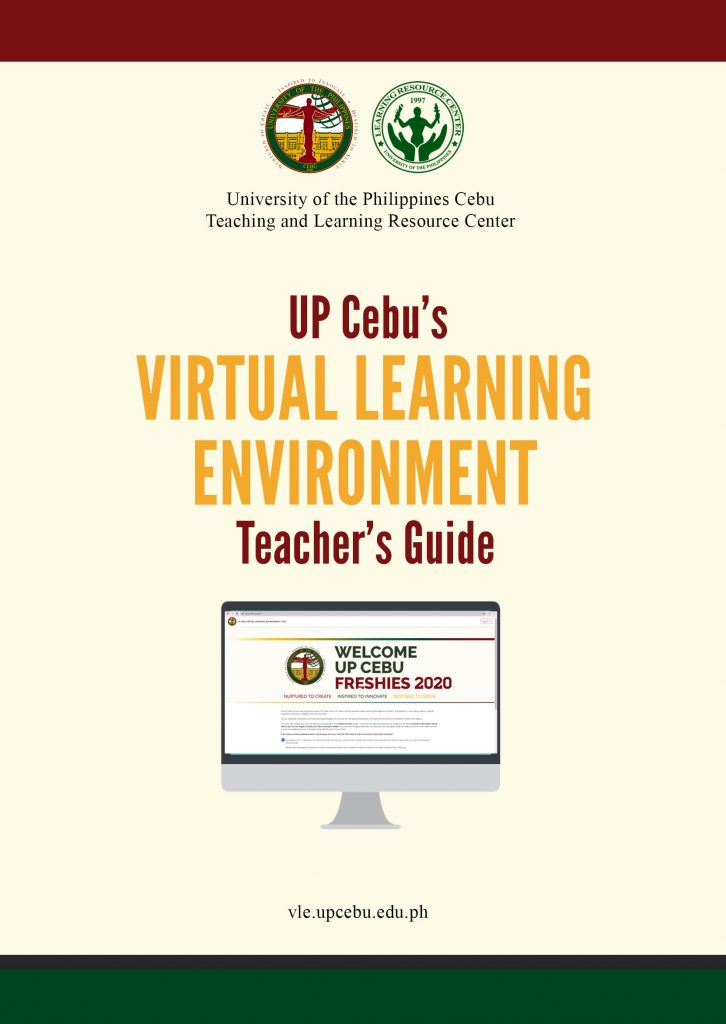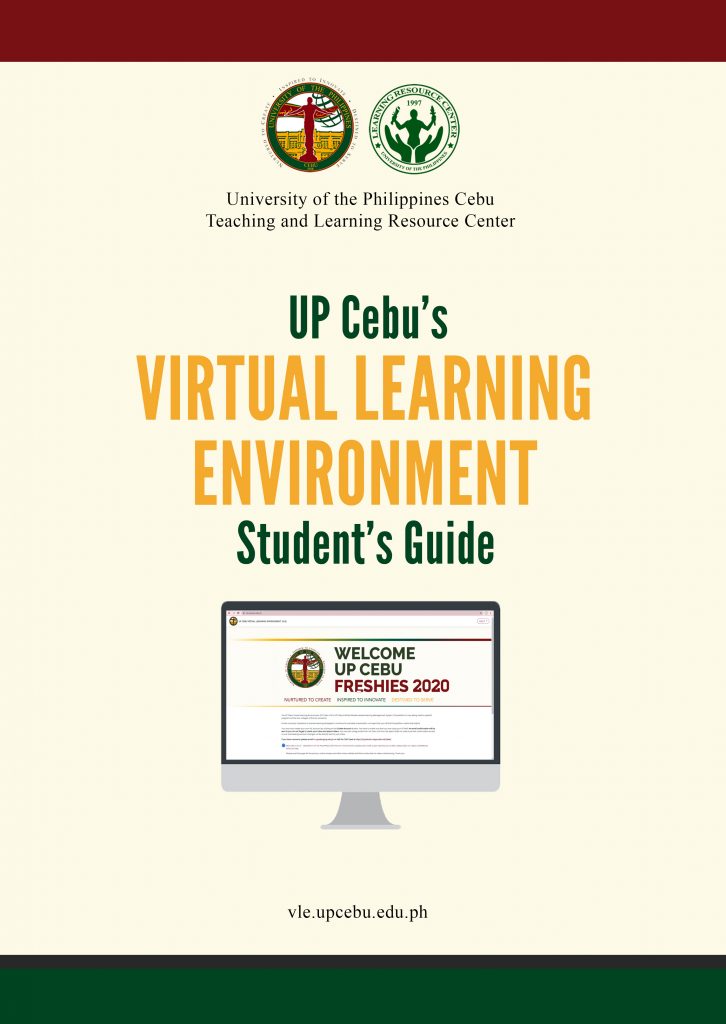Despite being around since 2014, the UP Cebu Virtual Learning Environment (UPC VLE) was fully upgraded and functional in 2020 when Remote Learning was implemented in the University because of the pandemic. As of writing, the LMS runs on Moodle 3.9 with almost 447 courses in total and 3074 users. However, a significant amount of faculty and students still refuse to use the online learning platform.
Here’s why you should use the UPC VLE:
- It is UP Cebu’s Official Learning Management System – UPC VLE is the official learning management system (LMS) of the University. MoodLearning is the service provider and developer of the VLE. Internally, it is both the ITC and TLRC which are the main offices that administers the LMS with constant communication with the MoodLearning team. UPC VLE is also regularly updated to the latest version of Moodle. In UPC VLE, you also get to see what’s happening! A monthly report is available in the home page and is accessible to all VLE users. The header slides are also updated to get the users in the loop of what’s new and upcoming. Worrying about UP Cebu websites’ downtime? Worry no more! Since the VLE is maintained via cloud server, it will remain accessible whenever internet problems arise in the university.
- The Activity Modules are Specialized – Although there will be many who fancies Google Classroom for being user-friendly, one of UPC VLE’s advantages is that the activities and resources are specialized to the user’s needs. No need for add-ons! Interactive activity modules are available such as Choice, Feedback, and Workshops which enables interaction between students and encourages class participation. Teachers are able to give direct feedback to students through the PDF Annotation tool without having to download student submissions. Computer Science students are also able to do their activities through VLE via Virtual Programming activity module. You may also use the external tool activity module to let the students access learning resources from other websites.
- Generate Reports Automatically and Monitor Progress using Activity Completion – In UPC VLE, Activity reports and statistics are available for each course via the course administration. These reports are automatically generated after several weeks into the course and will relay how students are performing in the course and or how often they check in the course. If enabled in the course, the activity completion helps both students and teachers to track their progress in the different activities and lessons. Students are able to see what tasks they have completed in the course.
- mLap as an in-house Anti Plagiarism Checker – Unlike Google Classroom’s limited anti plagiarism checker on its assignments, UPC VLE’s mLap can be used in every assignment activity module available in your course. Although Turnitin is also available as a plugin, mLap will not be needing a separate account since you can access it directly in the VLE. Once setup and a student submits a work, it automatically runs through submission and with just a few clicks, you may already view the results.
- Security of Assessment Activities – Using the safe exam browser, students are able to take exams while having a controlled access to internet sites and other windows to maintain academic integrity. They are also unable to view answers through programming hacks such as the inspection of elements.
GUIDES
The UPC VLE Guides for both Teachers and Students are now complete and accessible through the TLRC Website and through the home page of the UPC VLE. These are step-by-step guides on the basics of the VLE which helps the users learn to navigate the LMS on their own pace. Aside from these pdf guides, TLRC is also planning to put up training videos on its YouTube as a virtual guide through the access of VLE. To access the guides, simply click the UPC VLE Tab on this website or click here.
TRAININGS
The TLRC and MoodLearning also conduct trainings for UPC VLE on a request basis. Just last September, Prof. Jeraline Gumalal, TLRC Coordinator, conducted a training with the College of Science Faculty members. In October, Moodlearning also conducted VLE training for interested faculty members from the different colleges.
To request for trainings, you may send us an email at [email protected].



